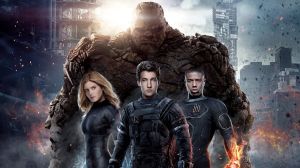Turning in a massive $782 million worldwide box office haul, Deadpool went from comic book icon to worldwide anti-hero icon this year.
Videos by ComicBook.com
The film wasn’t just director Tim Miller’s slick action visuals, or Ryan Reynolds comedic performance that sold moviegoers: it was the unique style of Deadpool himself. His personality delivered a film that was uniquely able to mock superhero movies, while still delivering a superhero movie — as pinpointed with stinging accuracy by its Honest Trailer breakdown.
For those new to the character, Deadpool — and his penchant for speaking directly to the audience — was a pleasantly surprising bit of playful fun, that added a whole new level of enjoyment to the viewing experience. For more familiar to the character this was nothing new, as Deadpool the comic book character has long used a technique referred to as “Breaking the 4th Wall.”
Breaking the 4th wall (if you still don’t understand it) is when a character in a fictional work is aware that they are inside of a fictional work, and are being observed by an audience. It is basically how a lot of stage performance works, and the term comes from the idea that “the 4th wall” is the window pane through which the audience is viewing the fictional world (the page, the stage curtain, the screen, etc…).
4th wall awareness is considered one of Deadpool’s super powers, and many fans don’t remember exactly when he started to exhibit it, because by now it seems like it always was there.
However, the truth is that Deadpool creator Rob Liefeld first made the character a riff on the DC merc Deathstroke, creating a standard assassin who had a few jokes to crack.
The 4th wall meta-humor actually began years after his creation, in the Deadpool Classic comic series, starting with writer Joe Kelly in isolated bits, then becoming a staple of the character under Christopher J. Priest and Gail Simone’s runs on the book.
In short: the breaking the 4th wall aspect of the character was developed over time, with several creators shaping and molding the character’s meta humor.

It is a tradition that has continued into the movie version, as Zombieland writers Rhett Reese and Paul Wernick – along with Ryan Reynolds himself – put their own stamp on the character’s 4th wall awareness, working from the wider canvas of superhero movie references, and industry meta-humor.
Mashable has a great list of all the 4th Wall breaks in the film, if you want to check that out.
Breaking the 4th Wall was indeed becoming more famous Deadpool applied the technique to the superhero movie genre. Thanks to reality TV shows and their “confessionals,” breaking the 4th wall has essentially become a common technique in entertainment, with comedy shows like The Office using confessional meta humor and 4th wall breaks (the Jim glances), or dramatic shows like Mr. Robot going so far as to make 4th wall breakage a central part of its storyline.
People seem to respond to the technique because it smartly takes clichéd storytelling conventions and turns them on their head or pokes fun at them by either calling the audience on their awareness of said conventions, or reinforcing their reaction to a specific event or moment. It’s a way of making the audience directly intimate with the character and his/her experience, or uniting them in shared opinion.
With a character like Deadpool it’s especially effective, because it allows us access to witty and insightful comedic commentary, on top of superhero action. It’s essentially double the entertainment value of your regular superhero character, and with a smart comedian like Ryan Reynolds delivering the lines, it’s pretty much a match made in heaven that fans can expect to enjoy in the upcoming Deadpool 2.

However, it’s harder to see how the technique would fit into an X-Men or X-Force movie featuring Deadpool as part of an ensemble. Would he essentially be the “Jim” of movie, being the lone character capable of 4th wall awareness? That could be really funny, but could also be out of place in an otherwise standard X-Men action adventure film.
What do you think: Are you a fan of Deadpool’s 4th wall-breaking antics? And should the technique get mixed into a regular X-Men action movie? Let us know on twitter or discuss with me @ppnkof!
NEXT: Why X-Men Should Join the MCU
The X-Men movie universe continues with Wolverine 3 on March 3rd, 2017, followed by Deadpool 2 in 2018.





